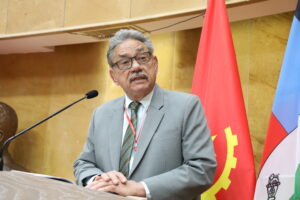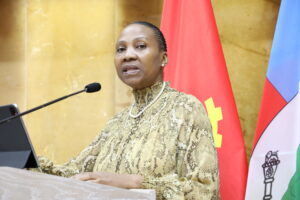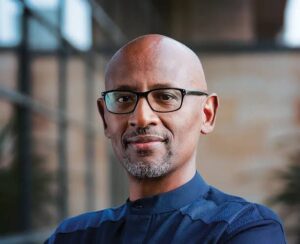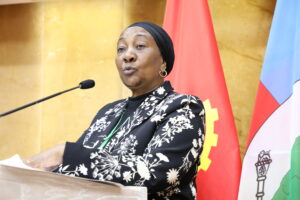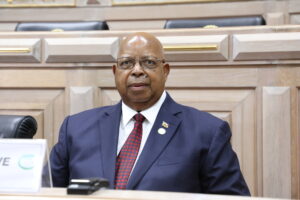Sex-4-Favours: Lesotho’s Hidden Education Curriculum (Part 3)


“Mohlomi was a mentor to the king of Lesotho, Morena Moshoeshoe I. Mohlomi would travel around Southern Africa teaching his philosophy of truthfulness, justice, peace, the love of man and of sane humanism.”
~Dr Ntando Sindane
If our Founder’s mentor gained renown in the terms described by South African scholar, Dr Ntando Sindane in the quote above, then this Wild West society is an insult to the respective legacies of Mentor and Founder. People descended from such greatness do not, if they value the spiritual and other legacies they have been freely bequeathed, run rampant abusing children and women and abusing the powers of their offices to teach other people’s children sexual immorality and how to “game” the system. They simply do not. I first encountered Dr Sindane’s work in the Journal of Decolonising Disciplines and, his publication revolves around Morena Mohlomi’s legacy and its implications for decolonizing the legal pedagogy in Intellectual Property law. The paper, published 4 years ago is titled, “Morena Mohlomi le Badimo: Reading decolonial articulations into the intellectual property law curriculum.”
Dr Sindane’s quote above contains 5 interconnected kernels constituting Morena Mohlomi’s holistic philosophy that may take us in a few different trajectories in terms of this series: truthfulness, justice, peace, love and sane humanism. However, in this piece, I briefly pursue the concept of sane humanism as it pertains to the topic at hand. German humanistic philosopher and psychologist, Eric Fromm explored sane humanism in his 1956 book titled, ‘The Sane Society’. Philosopher, Maria Popova provides an introduction to Fromm’s ‘The Sane Society’ by stating as follows:
Fromm examines the promise and foibles of modern democracy, focusing on its central pitfall of alienation and the means to attaining its full potential — the idea that “progress can only occur when changes are made simultaneously in the economic, socio-political and cultural spheres; that any progress restricted to one sphere is destructive to progress in all spheres.”
In the Lesotho context, we Basotho dropped the ball which Chief Mohlomi and King Moshoeshoe passed on to us by restricting ourselves to being prolific lawmakers and ratifiers of and signatories to various international instruments thus freefalling into the central pitfall of alienation. I asked Basotho men, when I began this series, why they hate themselves so? If they truly believe that we, females, were formed from their own bodies, it therefore becomes illogical to abuse your own body which leads me to then deduce that, eintlik, our men just hate themselves…and yet, my history insofar as it dates back our sane humanist, Chief Mohlomi, tells me otherwise.
What happened to us dear brothers and sisters? To bring us to this place?
This insistence on restricting ourselves to prolific, pretentious, lawmaking, we have done to the detriment of economic, socio-political and cultural progress and, according to Fromm’s perfectly prescient thesis, restricting ourselves to hollow progress in one sphere without, in tandem, interrogating our downward slide in, for example, the cultural sphere, has brought us the hidden education curriculum. Our culture, in totality, views women and girls as nothing more than objects that exist for the derision, runaway or unaccountable exploitation by men and boys. Practices such as gangrape, or as the male students at the National University of Lesotho call it, “ho liehela khomo” or to “slay a cow” and sexual harassment, exist in our education sphere because of our prevalent cultural perception and treatment of females in all spheres. These anti-female sentiments and practices are not restricted to Lesotho; globally there are all kinds of toxic gendered dynamics presenting themselves for serious interrogation.
The rise of anti-female public figures such as Andrew Tate, pushback from conservative Canadian psychologist, Dr Jordan Brandon Petersen and black female Conservative Candace Owens for us to “go back” to traditional gender roles is proof positive that the West is also reckoning with this unwise insistence on the separation illusion which is built into social justice interventions. I will pick this thread up again in subsequent column pieces; it is a minefield that deserves in-depth interrogation.
Last week I promised to examine how other countries have dealt with cultural regression in its gendered and violent dimensions and these countries include Ghana, Nigeria, Spain and the United States. As observed in last week’s piece, these countries have, in recent years, attracted the attentions of media and social critics alike for brazen sexual harassment and other sexual violations in schools, academia, the entertainment industry and the sporting fraternity to mention a few sectors.
In keeping with the hidden education curriculum theme, BBC Africa Eye threw a spotlight on the sexual harassment of female students by their male professors in Ghana and Nigeria in 2019. In a piece titled, ‘How Undercover Journalists Exposed West Africa’s ‘Sex For Grades’ Scandal’ NPR journalist, Emily Vaughn, chronicles how female journalists for BBC Africa Eye went undercover for 9 months to unearth shocking, jaw dropping stories of abuse of power in Nigerian and Ghanaian Universities after receiving several complaints, not just from West Africa but, from all over the African continent.
The lead reporter in the investigation, Kiki Mordi, has her own painful tale of being victimized by one of these academics and it is narrated as follows:
“I’m a 28-year-old who never got to finish school because of one thing,” says Kiki Mordi. “It wasn’t because I wasn’t brilliant or anything — I was a high flyer when I was growing up. But I didn’t even finish. All because of sexual harassment.” According to Mordi, one of her professors withheld her exam results for two semesters because she refused his sexual advances, leading her to drop out of school and give up her dream of becoming a doctor. Mordi tried to report her sexual harassment at the time but says, “It was clear nothing was going to be done. That’s robbery,” she says. “If there’s any one place in the world girls should feel safe, it’s school.”
Indeed. It is not that accountability is not built in to the various legal frameworks that I have been citing since I began this series. It is that accountability is not built into our gendered, violent, culture. Why? As Fromm presciently observed, the culture has been decoupled from “advances” in other sectors of our society…our society is seemingly intent on adopting norms which bear little to no correspondence to real, lived experience. This is a culture where men routinely dismiss women with the derisive “O ho ke eloa oa Beijing?” Such dismissive, resentful commentary should not, in turn, be dismissed by us because mindset informs commentary which then morphs into physical sexual violence as we continue to persist in our Anti-Mohlomism by separating the whole into convenient little compartments. Life is not compartments, life is not even subjects (kudos to Finland for leading the way in their education system and doing away with the notion of school subjects); life is one inseparable whole and we shall continue to suffer as we persist in the flawed, transplanted understandings and conceptualizations we hold of modern Basotho society.
So, what did Ms Kiki Mordi of BBC Africa Eye, and other journalists who went undercover, find in the course of their 9 months’ investigation in Ghana and Nigeria? The investigation was limited to the prominent University of Ghana and the University of Lagos and involved using hidden cameras and interviewing tens of former and current female students.
As Emily Vaughn of the NPR reports the hidden footage reveals:
֍Lecturers harassing, propositioning and attempting to blackmail Mordi and her fellow reporters in closed-door meetings.
֍A lecturer and pastor, Igbeneghu Boniface, at the University of Lagos, asking the undercover reporter about her sexual history, describing a university club in which lecturers kiss girls and repeatedly asking the reporter for kisses. These exchanges took place at several meetings inside his university office that were nominally about counseling the student on how to gain university admission.
֍During a filmed conversation at one such meeting, the reporter suggests to Igbeneghu that girls who engage in relationships with professors receive unfair treatment. Igbeneghu responds, “Of course now, that is the benefit. He will pass her very well now.” The reporter again suggests that’s unfair, and Igbeneghu says, “It’s not free for the girl now. Is she not paying for it … with her body?”
֍Nigerian NGOs working in the gender equality space reporting that, “Sexual harassment at universities, says Olabukunola Williams, “is like an open secret, it’s crazy. Everybody has a story.”
The policy and legislative response in Nigeria to the BBC Africa Eye documentary was equally revealing, essentially, same ole same ole. The Nigeria legislature reintroduced legislation that criminalizes sexual advances by lecturers towards students carrying mandatory jail time for lecturers found guilty of sexual harassment. Reintroduced being the operative word. I am not an expert on the Nigerian legal system but the reintroduction of legislation proves the salient point made by Eric Fromm 68 years ago: you cannot claim to have made progress in any society where you have alienated the economic, the socio-political and the cultural from each other. Progress is a holistic notion implicating all sectors of society and, I would assert, most especially the cultural sphere. Next week, God-willing, we delve a bit deeper into this BBC Africa Eye investigation then wend our way to Spain and end with the USA.
Mothepa Ndumo writes in her personal capacity.
Adv Ndumo is a Legal Academic at the National University of Lesotho, a Pension Law Scholar in the Faculty of Law registered for a PhD focusing on the domestic investment of pension funds, a Thomas Psychometrics Practitioner, an Industrial Sociologist and Certified Executive and Leadership Coach. She is an Alum of the National University of Lesotho, the University of Cape Town and the University of Namibia. Advocate Ndumo is the Founder & CEO of the Tataiso-Bhotani Group which has interests in corporate training, accredited coaching and mentorship and film, tv series and talk shows and publishing across multimedia platforms. Her passions are Lesotho, Afrika, indigenous systems of governance, history, young people and she is a lover of animals and of The Creator.






